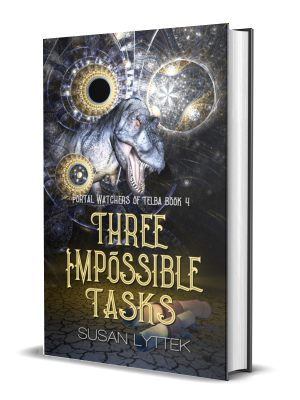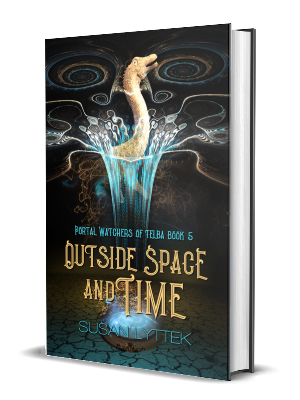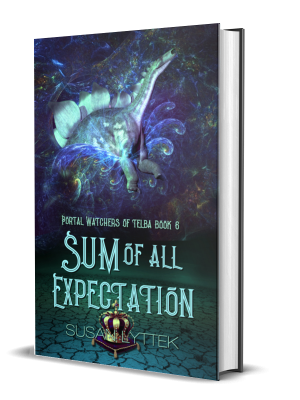
Sign up to receive Susan's latest post & your free Benefits for the Home School Parent E-book
S. A. J. Lyttek, a multiple award-winning writer, always loved writing, but didn’t arrive at the profession in the typical manner. After college and graduate school, she plunged into government consulting. In this environment, she discovered a knack for writing tests, interviews and other measurements. That soon became the focus of her career—reigniting her love for the written word. Thus captivated, she spent evenings freelancing “fun” writing including short stories, poems, articles and cards. When her eldest was a toddler, she quit full-time work to stay home and write. Eager to spend more time with her children, homeschooling intrigued her. From preschool through high school, she homeschooled both sons while continuing to freelance. While an integral part of the homeschooling community, she developed and taught writing classes to a generation of homeschoolers. Married to her childhood sweetheart, Gary, Mrs. Lyttek loves to share her commitment to learners of all ages and her fascination with the written word.
?* Only need five more comments before I choose a winner for the March giveaway!*
From the Phantom Tollbooth: “But why do only unimportant things?” asked Milo, who suddenly remembered how much time he spent each day doing them.
“Think of all the trouble it saves,” the [the Terrible Trivium] explained, and his face looked as if he’d be grinning an evil grin—if he could grin at all. “If you only do the easy and useless jobs, you’ll never have to worry about the important ones which are so difficult. You just won’t have the time. For there’s always something to do to keep you from what you should really be doing, and if it weren’t for that dreadful magic staff, you’d never know how much time you were wasting.”
Every time I read that description in the Phantom Tollbooth, I thank Norton Juster for his wisdom. As the hero Milo gets closer to his impossible objective of rescuing Rhyme and Reason, demons seem to be around every turn. Some, like the Terrible Trivium who is dressed in a suit and looks respectable, don’t seem threatening. But they all keep Milo from his true objective.
That’s the problem with busy-ness. It may look respectable, but it keeps us from the meaningful things that we long to do. Worse, it eats up the time that God would use for his purposes and his kingdom.
I love the feeling of accomplishment. Few things motivate me as well as crossing things off my to-do list or finishing a task, big or small. I rarely cross off all the items on a day’s list. When I do, I sigh in blissful satisfaction. (Then I wonder what I forgot to put on the list!)
Because of this tendency, it is so easy for me to flood my list with things I can do quickly. Things and tasks that won’t matter much beyond the moment. Sometimes, these are still necessary tasks. Dishes and laundry must get done on a regular basis. But if I focus on the simple objectives and ignore the long-term ones, no progress occurs on the difficult tasks. Novels don’t get written in a day.
That’s internal or self-generated busy-ness. It’s bad enough. But the other busy-ness I see in myself and others from time-to-time results from a combination of seeking value/approval in others and saying ‘yes’ to get it.
The people who agree to what other people request of them, instead of waiting to hear what God actually requests, get so busy it’s like they’re fluttering around. I can almost see wings moving faster and faster as they try to stay aloft and ahead of all they’ve committed to. For this reason, I call them butterfly Christians.
Sometimes, this state of people pleasing busy-ness is temporary. It’s still not the best of physical/emotional/spiritual states, but if only for a time, the person can more or less recover and rediscover their purpose in God. But if people live like that for too long? They burn out. So often, they change churches or leave the church altogether. Sometimes, they seem like butterflies trying to navigate a tornado.
Nobody can maintain that busy pace for long. We weren’t meant to walk according to the whims and spurious needs of others.
I’ve said before work is a good thing. It is not part of the curse. But how we relate to it and to God and others through it is definitely skewed thanks to sin.
For by grace you have been saved through faith, and that not of yourselves; it is the gift of God, not of works, lest anyone should boast. For we are His workmanship, created in Christ Jesus for good works, which God prepared beforehand that we should walk in them. (Ephesians 2:8-10, NKJV)
If we get too busy, either because we’ve set an internal standard of achievement or we’re relying on others for approval, we’re ignoring the principles in the verses above. We were each made, designed, for specific good works. But remember, Jesus says the burden is light. And here it says we’re to walk in those works. Walk, not run or sprint.
Work is a blessing and a calling. But to work rightly, outside of the power of busy-ness, we need to seek God’s face each morning. “Where, Lord, would you have me walk and work today?”
May we, like Milo, recognize the demon of trivium for what it is.
Not sure what I ate, drank, or did yesterday that made my body yell at me last night, but yell it did.
All last night, I’d doze for a few minutes to an hour, then pain would wake me up. I’d move, stretch, roll over, read or play a game on my Kindle, then doze off again. At one futile point, I grabbed my water and headed down to the couch, hoping using its recliner would help.
I had a lengthy list of things I wanted to get done today. Including a blog with a completely different title. But there’s nothing like exhaustion coupled with the echoes of pain to distract one from set purposes.
When we think of distractions, we think of the ones we choose, the frivolous ones like the mindless videogame I used to try and go back to sleep. But life throws enough of its own distractions our way, many of them related to the frailties of the human form we wear. It’s hard to focus on God and the things of the kingdom when sickness, hunger, weakness, and simple tiredness impede our ability to think. And those are simply the physical distractions our bodies can throw at us. What about the assortment that our brains can drop into our day? Confusion, worry, preoccupation, fear are some on the negative side, but the positives of anticipation, happiness, infatuation, and the like can also demand our attention.
Again, not all distraction is evil. We need some or life becomes monotonous. For that reason (and more) God created holidays for his people. He gave them days and seasons for feasting and socialization. We need recreation and community to restore us. But they have a time and a place. In the modern world, many act as if they believe the time to celebrate is a daily event and that work is evil. That idea ignores the fact that at creation, God called work, including the work he assigned to Adam, as good. We are designed to work to tend the world he gave us, advance his kingdom, and serve the brethren.
Distraction, good and bad, diverts our path from the work God means for us to do. As any driving or flying teacher will tell you, where you look is where you will go. It may be a barely noticeable digression at first, but it will grow over time. Soon, you discover that you are miles away from where you intended to be.
Proverbs 4:24-25 Let your eyes look forward;
fix your gaze straight ahead.
Carefully consider the path for your feet,
and all your ways will be established.
Hebrews 12 Let us run with endurance the race that lies before us, 2 keeping our eyes on Jesus, the source and perfecter of our faith,
Luke 9:62 But Jesus said to him, “No one who puts his hand to the plow and looks back is fit for the kingdom of God.”
Because my brain refuses to cooperate, the Scriptures that I wanted to use for this blog flit barely into the realm of thought and then right back out again. I know there are better ones for the point I want to make, but suffice it to say, God is enough. Whether we are distracting ourselves, life is distracting us, or outside circumstances divert our focus, God is enough. He is the lifter of our heads and the guide for our souls. When any area of life, chosen or not, distracts us we need to turn to our God in petition—Guide me, because I cannot guide myself. Put my feet on your path and put yourself right in front of me so I can see only your way and follow only you. Tell me, through your word, through prayer, and through the counsel of others, where to turn my eyes upon you.
Last week, I mentioned the flood of ideas I’ve been blessed with. Given them, you’d think I’d write and have written a lot more than what I have.
And truthfully, when I suffer writer’s block, it’s not related to ideas. The ideas are there. When I can’t write, it’s because of the unbelief in God’s goodness. It’s because of lack of trust in his guidance and the pity party side of pride. In other words, discouragement has won the first battle. If I acknowledge the truth of the matter, in my core, I echo Satan’s words from the Garden of Eden. “Did God really say…?”
Ouch. The truth never fails to wound.
One of my friends this week speculated on the Israelites in the wilderness. “How,” she asked, “could they doubt the presence of God when they saw the pillar of fire in their midst?” She sighed. “But then, we have the Holy Spirit within and we still have moments of doubt.” The analogy was wise and stuck with me. I didn’t have a recording device activated, so I paraphrased what I remember her saying, but you get the idea. Deep within the presence of God, surrounded by Him everywhere we turn, we still have times when we don’t believe Him, His word, His promises, etc. etc.
When things get harder than we think they should be, it’s so easy to look down at ourselves and our circumstances instead of looking out and up. There are a few reasons for that—none of them good.
First of all, we’re comparing life to our desires. We want what we want. When things fall short, we can feel gipped and doubt the goodness of God. But we’re doubting his goodness because technically, we’ve set ourselves up as a god and as the standard of goodness.
Secondly, we’ve given up ground to the enemy. I already mentioned that we’re agreeing with Satan that God might not have said this or that. We’ve also forgotten to meditate on the truth of God’s word.
Joshua 1:9 “Have I not commanded you? Be strong and of good courage; do not be afraid, nor be dismayed, for the Lord your God is with you wherever you go.”
James 1:5-6 If any of you lacks wisdom, let him ask of God, who gives to all liberally and without reproach, and it will be given to him. But let him ask in faith, with no doubting, for he who doubts is like a wave of the sea driven and tossed by the wind.
Last of all (at least for the sake of this post!), we’re listening to the wrong voices to confirm our attitudes or find our validation. I can’t tell you how many times I believed I wasn’t a writer over the last thirty years because a writer I admired said I was doing it wrong. I would attempt to imitate him or her and fail abysmally. (I can’t outline before I write to save my life! Or write sequentially. This point, for instance, was the last one I typed.) Similarly, we listen to the temptations to take the easy route, to give up, or to find our worth somewhere else. As believers, we know, deep down, that our worth comes from our Creator. After all, we are His workmanship, created in Christ Jesus for good works, which God prepared beforehand that we should walk in them. Ephesians 2:10. But when we’re trapped in the cycle of unbelief, we can’t see it.
Thinking about my problems with unbelief and the post last week, I wondered if my own written words could condemn me again. Sure enough, browsing through Sum of All Expectation, I found this “historical” quote from King Evad: ‘Some moments of extreme darkness oppress not so much because of the darkness itself, but because of your focus. You may feel the night overwhelm because you continue to look to it. Maybe you should turn around and look toward the sunrise.’
Lord, I believe you want me to serve you with my writing, help my unbelief. Lord, I believe you love me and want my best, help my unbelief. Turn my face to your sunrise!










Since Gary and I are on a cruise this week, and since we’ve been having meetings and planning sessions regarding his retirement from government civil service (likely January 2026), the title and theme seemed a good mash-up. Also didn’t want another negatively toned blog appearing on my page while we were relaxing in the spa or sliding down natural waterfalls.
I have decidedly mixed feelings about retirement.
First off, I don’t feel anywhere old enough to retire. In fact, I’m still applying for jobs and looking for ways to be more a part of the workforce. I still find it depressing that I wasn’t able to land a full-time position after Karl finished high school eight years ago. God controls all things and I’m guessing he had his reasons, but I can’t fathom what they are.
But I do like the idea of Gary being home and spending more time with him. My hubby is my favorite human being on the planet! And for so many reasons, he needs to retire from his current job. He’s been doing it so long that it’s lost the joy. He wants to try something else, something new. And that won’t happen on his current trajectory. We’ve talked about trying some kind of job we can do together, pursuing some things we’ve both dreamed about like taking a welding class or traveling and adventuring more. For those dreams and others, he needs separation from his current position.
But for me personally, there are many aspects of my “work” life that I will not, cannot retire from. I will write and be a writer as long as I can put pen to paper or tap on a keyboard. Same thing with researching rabbit trails or performing in-depth Bible studies. Those tasks are so intrinsic to who Susan is that to retire from any of them is to stop being me.
Lastly, while a change of jobs and responsibilities is necessary sometimes, stopping work totally seems wrong. As I read and study the Bible, I really don’t see retirement in its pages. I think it’s a man-made, modern idea. In part, the western world created retirement so the younger people would have jobs and allow for more of a career cycle.
But Biblically? I think of Moses who started leading the people out of Egypt when he was 80. I think of Caleb who fought giants at the same age in order to gain his inheritance. I think of Joshua leading a fledgling and oft-confused people when he was 80. I think of Abraham who was 99 when God promised, yet again, that Sarah would have a son. And so you don’t think it's just an Old Testament thing, think of the prophetess Anna who served day and night in the temple. Or Simeon who was promised he wouldn’t die until he had seen the Messiah. Or 80-something John the apostle, after surviving many attempts on his life and in exile on the island of Patmos, writing the book of Revelation.
I know that our forms are frail and as we age certain things get harder. But I firmly believe that if you have breath and you love God, he has a purpose for you. It could be something as simple as phoning people who are shut in or writing letters to prisoners, or as involved as volunteering to rebuild homes after a disaster. Or anything in between depending on how God gifts and calls you.
The one parable Jesus told in Luke about a man who planned to retire was less than complimentary. “The ground of a certain rich man yielded plentifully… 19 And I will say to my soul, “Soul, you have many goods laid up for many years; take your ease; eat, drink, and be merry.” ’ 20 But God said to him, ‘Fool! This night your soul will be required of you; then whose will those things be which you have provided?’
It wasn’t the fact that he had wealth and wanted to enjoy it that was the problem. It was that he didn’t consider God might’ve had a purpose for him and his wealth.
I guess it’s the purpose angle that makes the idea of retirement set my teeth on edge. I want to live purposefully all of my days. It may not always be 40 hours a week, or a variant of that, but I want every week I breathe to have reason.
And yes, I will have writing projects with on the cruise. Not that I’ll get a lot done, but I want the option to be able to play with words. Because, after all, that is part of my purpose.